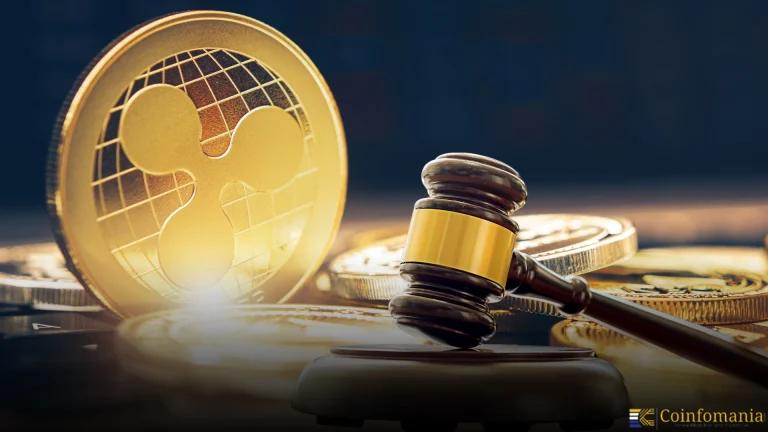Cryptocurrency Regulations in South Africa
Crypto is slowly gaining some level of acceptance in South Africa, the stance has been somewhat crypto-friendly but increasingly regulated. However, unlike Bitcoin, which is not legal tender as such, crypto assets are treated as financial products under local law and are under the supervision of the country’s financial oversight institutions. This dual approach allowed […]

Crypto is slowly gaining some level of acceptance in South Africa, the stance has been somewhat crypto-friendly but increasingly regulated. However, unlike Bitcoin, which is not legal tender as such, crypto assets are treated as financial products under local law and are under the supervision of the country’s financial oversight institutions. This dual approach allowed innovation and adoption while protecting consumers from fraud and volatility.
With crypto regulations in South Africa still being formidably fluid, it becomes imperative for investors, startups, and businesses in the market to understand the same. However, it has been a high adoption rate country with reported crypto spending of more than $51 per user on an annual basis, and has suffered more than $4 billion in reported crypto scams — a clear push towards recent regulatory tightening.
There are several key bodies that regulate the crypto ecosystem in detail, namely the Financial Sector Conduct Authority (FSCA), South African Reserve Bank (SARB), Financial Intelligence Centre (FIC), and South African Revenue Service (SARS). All of them play a crucial role in shaping policy, licensing platforms, enforcing AML standards, and collecting taxes.
Historical Context
Despite the fact that South Africa hasn’t had a dedicated regulatory framework for crypto, its crypto journey has started. Before 2018, there was vague official guidance. But that changed when SARS issued guidelines in 2018, that crypto gains will be taxed under existing income or capital gains rules. The issue is not that the medallions prevent scams; to the contrary, the lack of consumer protection was a concern with such a medallion scheme, as there were scams.
In 2021, a significant milestone came when the Intergovernmental Fintech Working Group (IFWG) released a position paper providing advocacy proposals for specific crypto asset regulation. This was the government’s declaration to bring crypto into the financial system as well as address the systemic risks.
In October 2022, the FSCA classed crypto assets as ‘financial products’ which means that businesses involved in crypto assets need licenses. This marked the move from a largely unregulated market to the formal leading market which aims to both defend consumers and to promote innovation based on world standards.
Regulatory Framework
The regulatory structure of South Africa’s crypto economy is more defined, and a number of authorities coordinate over various aspects in the crypto economy.
Key Regulatory Authorities:
There is a clear system where the licensing of Crypto Asset Service Providers (CASP) falls under the Financial Advisory and Intermediary Services (FAIS) act under the oversight of the FSCA. Until March 2024, it had approved only 59 licenses.
Project Khokha is part of the SARB’s exploration of CBDCs and crypto-related payment systems, while the SARB oversees broader monetary policy.
AML rules, such as the Travel Rule, are enforced by the FIC with FATF Alignment expected by April 2025.
SARS handles taxation of all crypto activities, including capital gains, income, and service-related VAT where applicable.
AML & KYC Requirements
The amendment of FIC 2022 declared CASPs as accountable institutions that must conduct KYC checks and transaction monitoring.
Taxation
Depending on the nature of the crypto transaction, crypto is either taxed as ordinary income or capital gains. Crypto asset transactions are VAT objects but services of crypto assets may be subject to VAT.
Initial Coin Offerings (ICOs), Security Token Offerings (STOs): ICOs & STOs will be regarded as financial products falling under strict control, especially if they are linked to Collective Investment Schemes or Pension Funds.
South Africa’s Crypto Policies
While cryptocurrencies are not recognized as legal tender in South Africa, they are freely allowed to be used as financial instruments. Crypto, in the year 2022, was allowed by the FSCA’s 2022 classification to enter regulated investment and trading frameworks for safe adoption. Some of the highest crypto usage being enjoyed in Africa is seen in the country that has strong participation in both the retail and institutional spaces.
Mining is legal and it does not fall within the scope of any existing national policy. Despite the fact that the South African Reserve Bank has not issued targeted guidance on mining conduct or banned it, yet the latter has not opposed it. Mining remains open, but electricity use and environmental impact may come to the fore in the future.
Government innovation is also underway. SARB is looking into CBDC issuance and blockchain-based interbank system settlements through Project Khokha. This includes the launch of a regulatory sandbox for the testing of crypto and blockchain applications in an environment where regulation can be controlled, such as Ripple’s trials of cross-border payments.
There are serious consequences for non-compliance with licensing or AML obligations. Fines may total $510,000 and they may be subject to criminal penalties for serious breaches. Just like regular crypto tax evasion, it will also incur penalties and interest, and the penalties are not taken too lightly by SARS on undisclosed crypto assets.
South Africa’s Approach to Crypto Innovation
South Africa has certainly been showing signs of forward-thinking on the issue of blockchain and crypto innovation. The IFWG (Intergovernmental Fintech Working Group) also has a regulatory sandbox to help startups and fintechs test blockchain applications. Numerous projects such as Mercury Foreign Exchange and Ripple were accepted into early sandbox phases.
The South African business is increasingly adopting crypto—from payment providers to investment platforms. Due to its facility for making cross-border transactions and appeal as a store of value when local currency volatility occurs, retailers, freelancers and digital services companies have embraced crypto.
Within Project Khokha, the SARB has taken the lead in the world at the state level for examining central bank digital currencies (CBDCs) and their potential usage for both wholesale and retail purposes. This bolsters South Africa’s claim as a leader in blockchain and DeFi in Africa, attracting the interest of global and regional crypto players.
Notable Challenges and Issues
In spite of improved regulation, enforcement is lacking. In this case, crypto is anonymized and therefore complicates real-time supervision, especially when dealing with peer-to-peer transactions. The existing AML framework is an ever-developing one, so tracing illicit activities on DeFi and privacy-enhancing technologies is very difficult.
In addition to this, jurisdictional overlaps between FSCA, SARB, FIC and SARS complicate South Africa’s regulatory landscape such that it is not uncommon for businesses to face confusion over compliance requirements.
People’s perception of crypto is a mix. Adoption is robust, but particularly so among younger users and those taking the inflation hedge; after the fact, they remember high-profile scams such as Ponzi schemes and fraudulent investment platforms. This perception is what regulatory authorities are trying to balance: the opportunity and the importance of consumer protection.
Key Regulatory Trends and Future Outlook
South Africa will continue to improve its regulatory framework in the future. Compliance with FATF global standards of having the Travel Rule implemented by April 2025 will make the country meet FIC’s obligations and increase crypto transaction transparency.
The FSCA is also going to tighten supervision by expanding its licensing regime beyond exchanges to that of custodians, wallet providers, and even stablecoin issuers. As for Project Khokha, the SARB is moving from its new phases to possibly create a CBDC pilot in the next two years.
Considering that South Africa is the leading crypto space in Africa, its regulatory decisions will set the precedent for the neighbouring countries, promote collaboration in regional terms and facilitate interchange between crypto traders across African borders.
As this trajectory continues, Africa could have a South Africa-centric crypto hub on its hands: combining strong infrastructure and very clear regulation with a growing retail demand.
Conclusion
Cryptocurrency’s regulatory stance is measured, proactive, and very much in its formative stages in South Africa. The country has laid out a strong base for safe adoption as well as innovation by recognizing crypto as a financial product and rolling out structured licensing.
It will remain critical for investors, startups, and users to keep current on regulatory development. With South Africa continuing to establish standards and explore blockchain’s potential, its influence in the worldwide crypto ecosystem will increase, and it is a country to look out for in the crypto sector.
Frequently Asked Questions (FAQs)
1. Since Bitcoin is neither regulated nor controlled, is it legal in South Africa?
Yes. Bitcoin is considered to be legal to buy, hold and trade but not as legal tender.
2. Are South African crypto exchanges licensed?
Yes. The FSCA requires all crypto service providers to register. Existing businesses had a deadline of November 2023.
3. What is the treatment of crypto tax in South Africa?
Taxes on crypto depend on whether it is sold or earned. At present, crypto itself is not subjected to VAT, but the services related to it might be liable to VAT.
4. Is crypto mining allowed?
Yes. Although mining is legal and unregulated at this stage, business and environmental legislation in general still applies.
5. Is it possible to use crypto to pay for goods and services in South Africa?
It depends on merchant acceptance, yes. Crypto isn’t legal tender, however, it can be used in private transactions.
6. What is the Travel rule in South Africa?
In the Travel Rule, crypto platforms must give sender/receiver details for transactions. It will come into effect by April 2025.
7. Does South Africa have a CBDC?
South Africa does not have a CBDC yet, but they are working on Project Khokha which is the SARB’s central bank digital currency pilot.
8. How can unlicensed crypto businesses be penalized?
Unlicensed operation might result in prison time and fines of up to $510,000.
9. Are ICOs regulated, or is token offering within the ambit of the law?
Yes. These are also regarded as financial products and, as such, are falling within the ambit of the FAIS Act.
10. What are crypto tax requirements when reporting?
Crypto income or gains must be declared by taxpayers. A failure to report can incur penalties.
Follow us on Google News
Get the latest crypto insights and updates.
Related Posts

Ripple Highlights Custody as Key to $18.9T Tokenized Assets by 2033
Shweta Chakrawarty
Author

Hong Kong SFC Issues New Custody Rules for Crypto Platforms
Shweta Chakrawarty
Author

South Korea and Vietnam eye $150B trade despite Trump tariff
Shweta Chakrawarty
Author